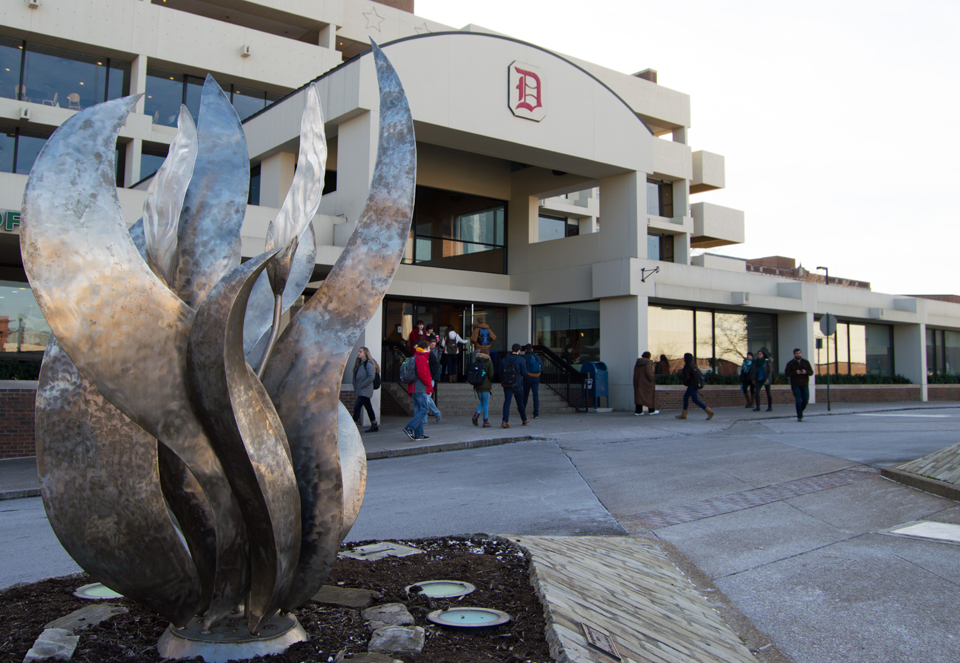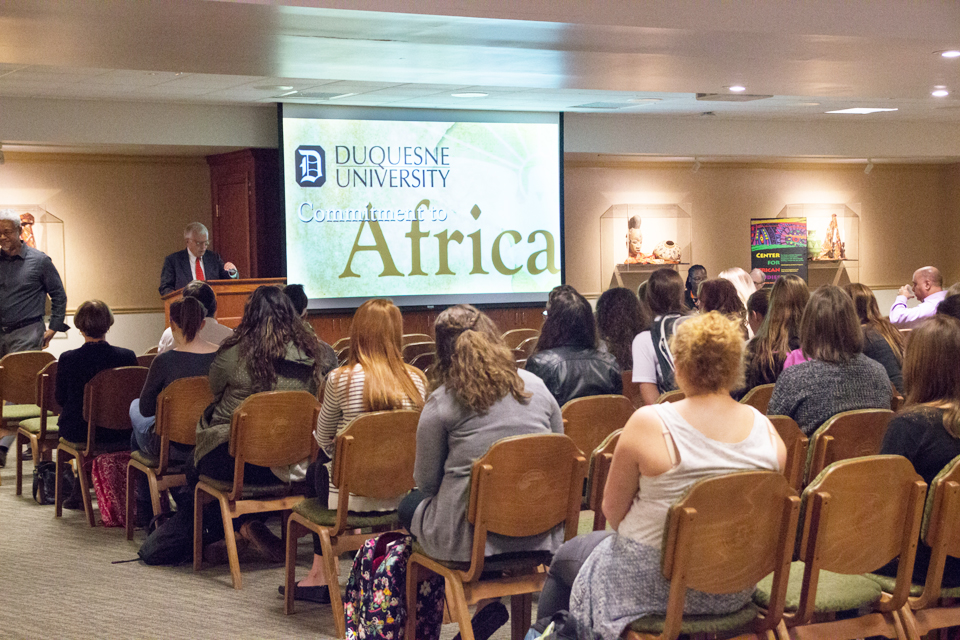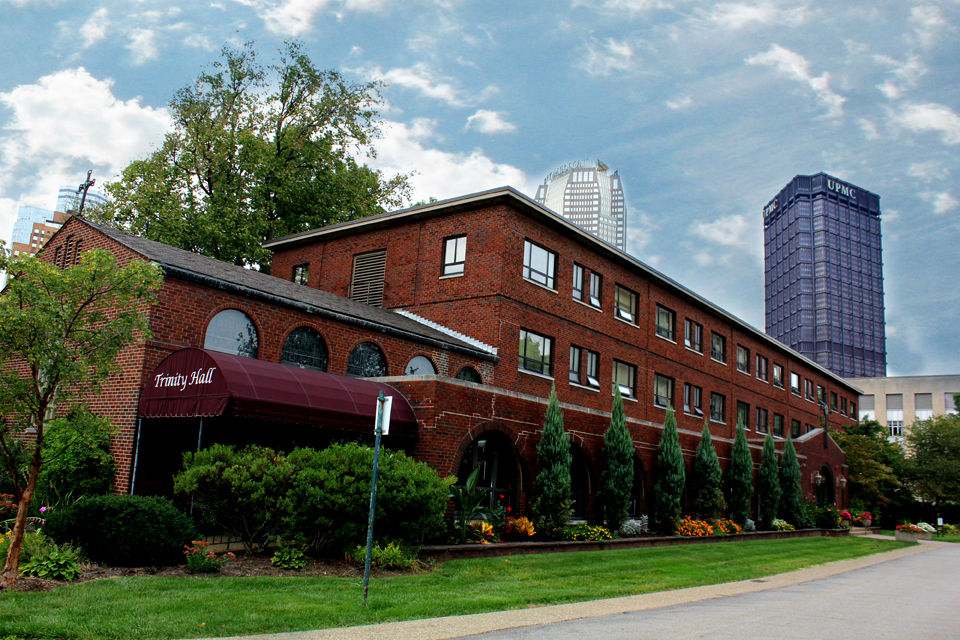
by Emma Polen | features editor
Feb. 3, 2022
Founder’s Week is officially underway, and this year there is greater significance behind the celebration.
In addition to celebrating our school’s founders, Duquesne is participating in a nation-wide acknowledgment of the 150-year anniversary of the U.S. Spiritan Congregation.
Duquesne plays a special part in this event as the only school of higher education still under the Spiritans’ name in the U.S. Founders’ Week is just the beginning of a larger congratulatory celebration.
The Spiritans’ 150th anniversary began in January 2022, with the start of the new liturgical year, and it will continue through Pentecost of next year (May 28, 2023).
For 150 years in the U.S., the Spiritans have shared their mission through educational and pastoral ministry.
Tom White, Duquesne University’s archivist and curator of special collections, is the resident Spiritan historian for Duquesne.
At the Spiritans’ arrival in 1870s Pittsburgh, White said, “you had an increasing number of Catholic immigrants.”
As the immigrant population grew, the Catholic Church needed assistance creating a school for the children of new immigrant families.
“They wanted something that could serve the immediate needs of the community here [in Pittsburgh],” White said.
The founding Spiritans, led by the Rev. Joseph Strub, began the school “on a shoestring,” White said. They had very little resources at their beginning, and not many students, either.
The Spiritans’ educational facility moved locations from the top floor of a bakery on Wiley Avenue to the structure of Old Main at the crest of the Bluff, White said, where the Spiritan fathers built the bricks themselves.
Since their arrival in the U.S., the Spiritans have maintained their ministerial values.
According to White, the priests in administrative, teaching and coaching positions did anything they could to assist students in coming to Duquesne.
“They [Spiritans] would always find a way for those students to get here,” White said. Students would sometimes shovel snow or cut the grass if they were unable to pay tuition for a semester.
Today, the Provincial of the U.S. Spiritan Congregation of the Holy Spirit, the Rev. Donald McEachin, shared the ways in which the Spiritans continue their ministry.
“The idea of service to marginalized populations is certainly one of our focal points in all of our educational [facilities],” McEachin said.
McEachin served as Duquesne University Chaplain in the 1990s, and he spoke about the unique opportunities students have to participate in meaningful ministry while they attend this Catholic university.
“One of the principle interests that we have at Duquesne is fostering a sense of world vision in the students that come to Duquesne and a sense of community service,” McEachin said.
Just as the Spiritans set out to educate an under-served population in the 1870s, Duquesne encourages students today to lead in a way that serves everyone in the community.
This year, the Spiritans’ anniversary follows the theme of “Led by the Spirit where the need is greatest,” which speaks to their work nationally as well as internationally.
The Rev. Lazarus Langbiir is an administrative assistant at the U.S. Spiritans’ headquarters in Bethel Park.
Langbiir shared how the Spiritans are also closely involved elsewhere in Pittsburgh, and around the entire globe.
“One of our charism is to be available, always available, to the church,” Langbiir said, “to go to where the need is the greatest, where the church finds it difficult to get workers or wherever the church needs us.”
In Pittsburgh, the Spiritans serve beyond the Duquesne community. Langbiir described a program called Fishes and Loaves that serves the elderly population of Hazelwood.
“We go out and buy…groceries and bring [them] over to Hazelwood Towers where seniors live,” Langbiir said. For many living in the development, there is no easy way to get the food they need.
“Outside of the U.S., we are in at least 60 countries,” Langbiir said. The Spiritans are present on every habitable continent in the world.
Langbiir is studying for his doctorate in the Communication and Rhetoric department at Duquesne.
As a Duquesne student himself, Langbiir could attest to the connection of the Spiritans’ current educational advocacy to its historical tradition.
“It’s education for the mind and Spirit, so we offer holistic education,” Langbiir said. “When we receive our students, we are not just thinking about their intellectual development. We are also thinking about their spiritual and human development as well.”
The Spiritans welcome everyone into their ministry, whether through becoming a Spiritan lay person or a Spiritan friend.
Either way allows for any community member to “embrace spirituality” through meaningful service, regardless of their place in life, Langbiir said.
“The 150 years anniversary is expected to…remind all of us of the legacy of the Spiritans in the U.S. and then also to celebrate those who continue to do their best to keep the Spiritan vocation and order alive,” Langbiir said.
After Founders’ Week, the U.S. Spiritan Congregation will continue to celebrate this significant anniversary with special events throughout the year. Along with multiple city and nation-wide retreats, The Spiritans’ 150-year Anniversary Gala will be held April 6.



